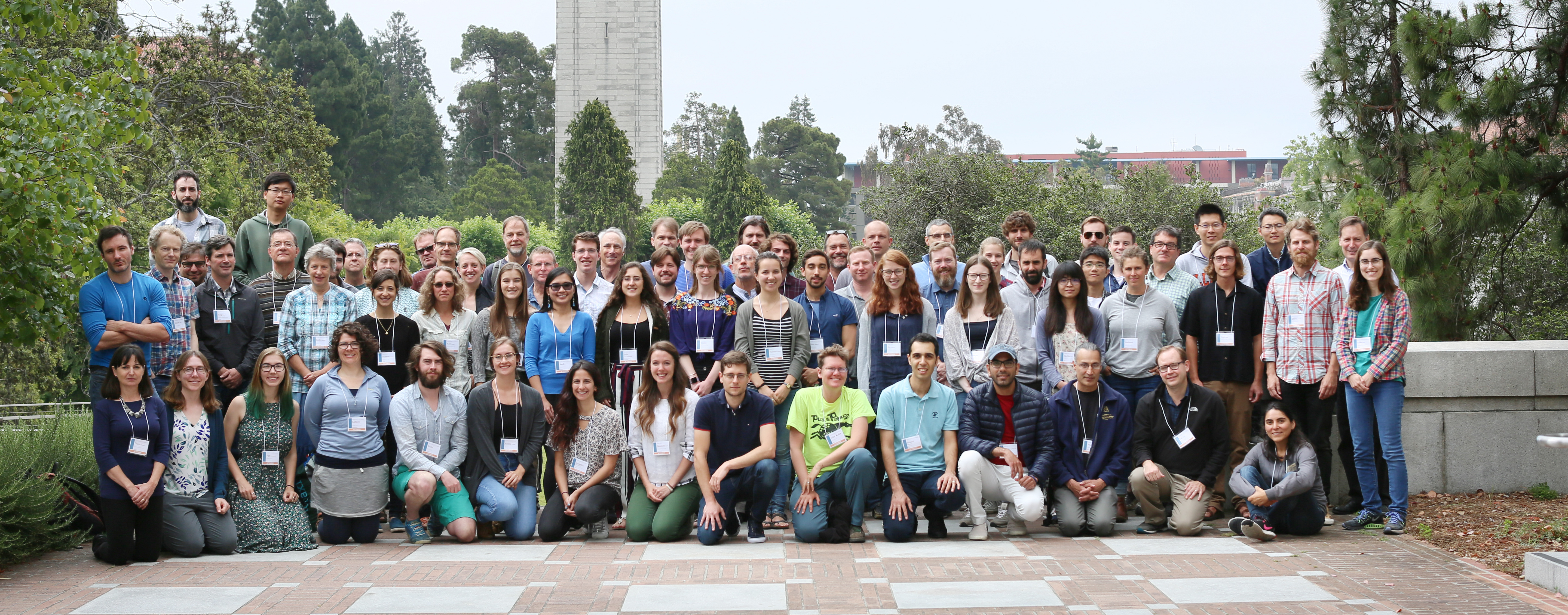With the advent of CIDER funded under the CSEDI Program (EAR-1903727) and the GeoPRISMS Program (OCE-2025195), the CIDER structure is evolving. The former Steering Committee has been dissolved.
CIDER is managed by the Director (PI Bruce Buffett, UC Berkeley) assisted by an Executive Committee (EC) and an Advisory Committee (AC).
The Executive Committee is the primary decision-making body of CIDER. It will meet once per year to approve the theme for the next year of CIDER, the location of the next CIDER programs when not yet fixed, and deal with major business items. With the Director, the EC will handle additional business responsibilities through its regular meetings, teleconferences and electronic mail. The EC has five voting members (a chair, a Vice-Chair, and three members at large) and two non-voting members (the Director and the AC Chair. The EC will have authority to approve (or decline) resources requested for follow-up research support of junior scientist lead groups formed during the summer programs and the purpose and make-up of working groups.
The Advisory Committee provides scientific guidance to CIDER. It will include at least two members of each of the four main disciplines, one with interests and expertise in deep earth studies and another one in shallow earth constraints on internal structure and dynamics. It will also include a member of the geomagnetic research community. Membership of the committee will rotate, with individuals serving for terms of approximately 3 years.
The advisory committee will help CIDER shape its long and intermediate-term goals and will help evaluate requests for CIDER resources for working groups, for CIDER-related research, and for CIDER research fellowships. In particular:
- Cider Themes Each summer, the CIDER program has a theme topic. Selection of these themes is a critical component of CIDER. Therefore, perhaps the most important job of the advisory committee is to identify potential themes and recommend them to the Executive Committee and the Director. Each CIDER program has a principal individual who is responsible for the organization of topics and recruitment of the summer’s senior lecturers. This individual is generally aided by a committee from other subdiscplines, as well as by the director and the CIDER Executive Committee. When the Advisory committee identifies potential themes, it is hoped that it will also suggest potential individuals to lead the program.
In order to allow planning of the summer programs, including proposals to KITP for residence at the Santa Barbara site, the Advisory committee needs to make theme recommendations to the Executive Committee 2 years in advance.
- Approving applications for working groups, and research fellows In the FESD grant that currently funds CIDER II, there are resources to support standing working groups on topics of interest to CIDER. These resources are chiefly to facilitate travel so that the research groups may function. Proposals for working group formation will be assessed and prioritized by the Advisory Committee during their annual meeting.
The results of the working group work will be posted on the CIDER website and presented, in particular, at the community workshops in Years 2 and 4.
Similarly, the current structure of CIDER II provides resources for post-docs to work for an extended period of time with other members of the CIDER community. Proposals for research fellows will be assessed and prioritized by the Advisory Committee during their annual meeting.
- CIDER community workshops The Advisory Committee will work with the Director and EC to organize the community workshops
- Annual Meeting The AC will meet face to face during the annual post-AGU CIDER workshop and will conduct regular phone conferences and e-mail correspondence. The AC is encouraged to attend CIDER summer programs whenever possible.
The summer program organizers will include one representative of each of the 4 main disciplines concerned. The lead organizer will be chosen (preferably among volunteers) upon recommendation of the AC and approval of the EC. He/she will work closely with the Director for all aspects of summer program organization. The summer program organizers will be expected to each spend at least 3 weeks on-site. The summer program instructors will be selected by the summer program organizers during the Fall preceding that program, partly by invitation, and partly from a pool of volunteers. They will form an ad-hoc working group that will hold phone conferences and a face-to-face organizational meeting at the Fall AGU meeting.

